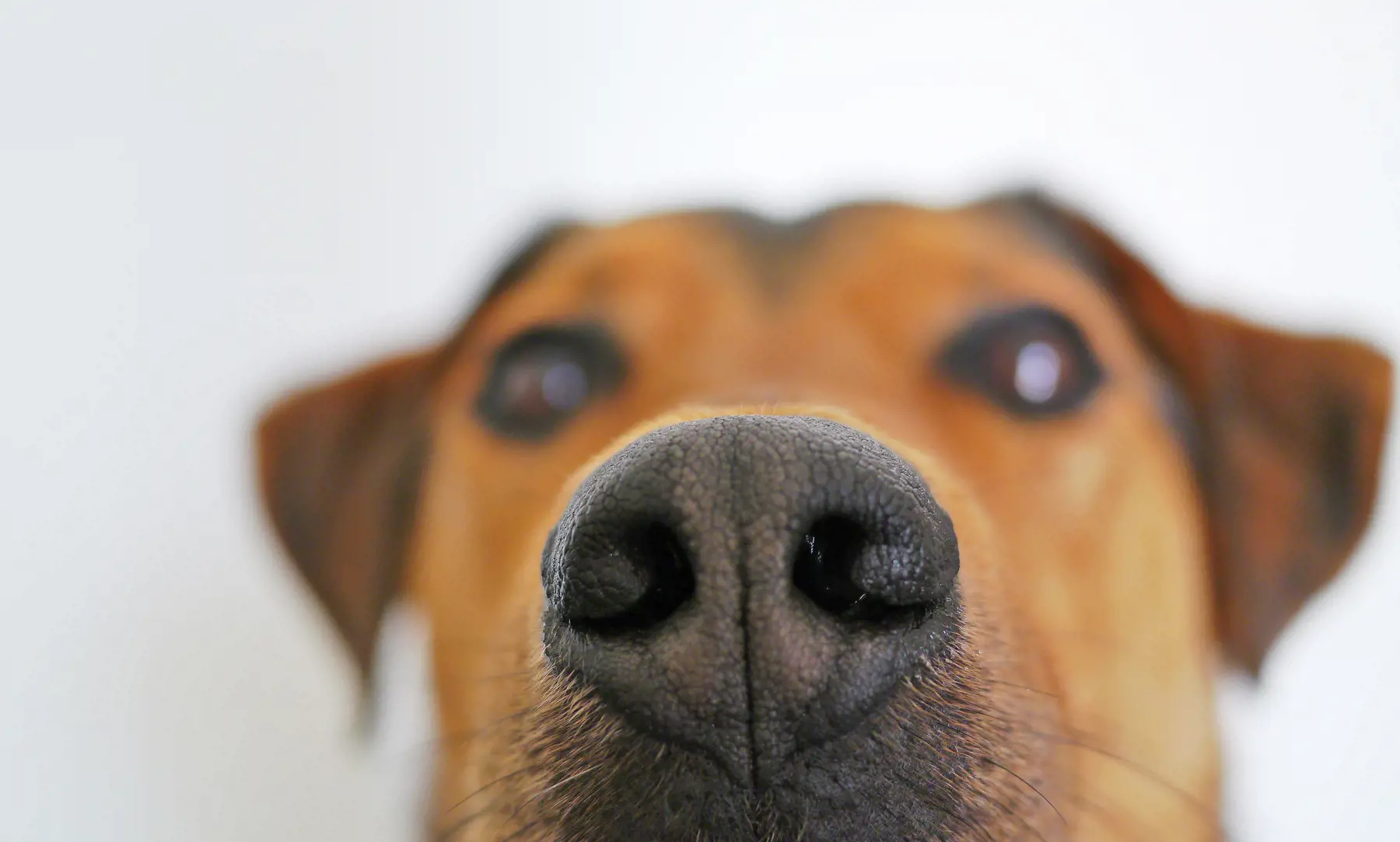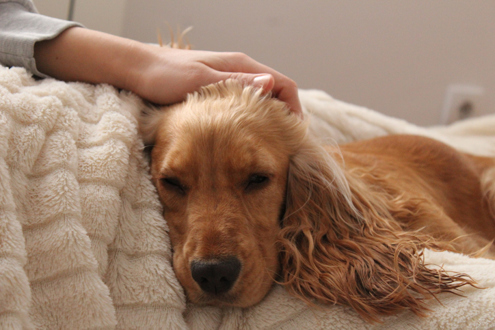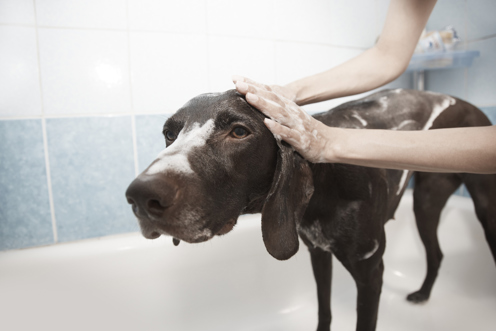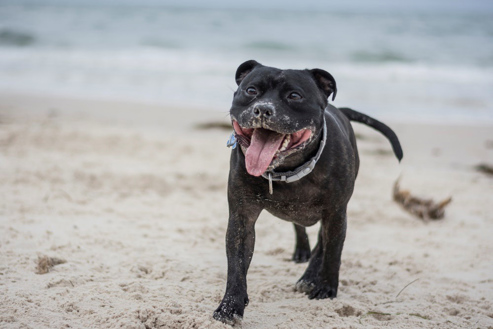Why does my dog smell so bad?
2nd July, 2020

Heard the one about how the dog with no nose smells? Terrible!
But a malodorous Maltese is no joke if you have to share a living space with it. An awful stench could even be a sign that you need to take your pooch to the vet – insurance for dogs could help towards the fees.
So what should you do when your furry friend’s fragrance is less than sweet? Have a quick nose of our guide to pongy pups to find out more.
Normal doggy smells
Visitors can often tell that you own a dog just by a brief sniff inside your home.
That’s not to say the smell is necessarily bad: if you’re a dog lover, you probably find the scent comforting and homely. But it is unmistakably doggy.
Canines don’t sweat from skin pores like humans do, but they do perspire from their paws and hair follicles. They also produce oils that are essential for their skin and hair.
Then there are the glands in their ears, which release a lightly yeasty scent.
And finally, of course, their anal glands secrete a musty odour that is apparently irresistible to other dogs – hence the way pooches typically greet one another with a good sniff of each other’s hindquarters! This smell is even more prevalent when the female pooch is in season.
All those oils and scents add up to a rich bouquet that’s individual to each animal and helps canines tell each other apart.
And yes, it does leave a trace on your furniture, carpets and clothes – but that’s just what happens if you welcome a dog into your home and life.
Regular washing – of your dog, your clothes and soft furnishings – should prevent an unpleasant build-up of aromas.
Don’t choose an overly perfumed shampoo, or we can pretty much guarantee that your dog will restore its old odour as quickly as possible by jumping headfirst into the smelliest thing it can find.

Unhealthy body odours
Sometimes, though, your pooch is more pungent than usual, which can be a symptom of a bacterial, yeast or fungal infection.
Dogs with long, floppy ears such as Cocker Spaniels are particularly prone to ear infections, as are those with hairy inner ears.
Try cleaning your long-haired Lab’s ears of excess wax with a cotton wool pad soaked in a gentle ear cleanser.
Pooches such as Poodles will need their hairy ears groomed on a regular basis to avoid a build-up of muck and germs. If you find the job too icky, then paying a professional groomer will be money well spent.
Animals with deep skin folds are susceptible to skin infections. So if you’ve got a pongy Pug, make sure you dry it thoroughly after baths, as many micro-organisms thrive in damp environments.
And don’t be tempted to bathe your animal too frequently – you risk drying out its natural oils.
Dogs with allergies are likely to trigger skin infections by excess scratching, so get treatment for their underlying condition.
Dry skin can also crack and get infected, so consider improving your dog’s skin by swapping its cereal-heavy diet for one rich in fatty acids.
You should also avoid perfumed shampoos which could irritate its skin, and instead clean its hair by brushing it and rubbing in unscented baby powder.
Lastly, your dog’s anal glands can get blocked, prompting your pooch to lick the area excessively and let in infection, potentially causing a stink.
Don’t even think about treating it yourself – this is what vets are for. Quality dog insurance could help you cover the costs.

Doggy emissions
Sometimes, your pooch smells just fine – until you get a sudden gust of foul odour.
Like humans, all dogs occasionally suffer from flatulence, particularly after a heavy meal. Usually, the best remedy is opening a window, but if the problem persists you should discuss it with your vet.
Then there’s bad breath. A panting pup trying to lick your face is unwelcome at the best of times – but if it’s got halitosis, the effect can be overwhelming.
If it’s just normal doggy breath that’s bothering you, good dental hygiene including daily tooth brushing should resolve the issue. You can buy healthy dog chews, too, which reduce the build-up of tartar and plaque.
But if there’s really a stench wafting from your dog's mouth, it’s likely to be a decaying tooth or infected cavity.
See your vet straight away to prevent the problem spreading – insurance for your dog should help you cover the cost of treatment.
The worst smell of all!
But no amount of bad breath or wind can rival the very worst doggy stink of all: that of an animal who’s rolled in something it shouldn’t have.
As any pup parent knows, many canines seem instinctively drawn to covering their fur in evil-smelling substances: dead animals, rotting food and, especially, their own and other dogs’ faeces.
It’s said to hark back to their wild ancestors’ hunting days, when they might need to mask their own smell to creep up on their prey.
Another theory is that it’s a kind of scent-record, allowing a dog to communicate to pack-mates where it’s been.
So if your Cockapoo’s covered in you-know-what, is there anything you can do about it?
Training is key. Whenever your dog begins to roll, make a loud, sharp noise to discourage it. You could even carry a water bottle and spray it whenever it makes its move towards a pile of poo.
If you still can’t keep your doggy out of the doo-doo, put it on a short lead when you’re out walking. Or get a hose, and wash your whiffy woofer down outside before you let it loose on your carpets.
Why does my dog stink so bad even after a bath?
Dogs, like humans, have a unique smell, which can sometimes be unpleasant. But when the odour persists and makes you think whether "my dog stinks" even after a thorough scrub down, it could indicate an underlying health issue that needs attention.
Several medical conditions could be behind your furry friend's persistent stink:
-
Skin infections
-
Dental issues
-
Anal gland issues
These are among the common culprits.
Environmental factors like rolling in something smelly or a damp coat can also contribute to the bad odour. Your dog's diet may also play a part - a balanced diet is essential for overall health and a fresher smell. So, if your dog still smells after a bath, don't just reach for the doggy perfume.
Try to identify the root cause. Regular vet checkups, good hygiene practices, healthy diet and grooming could help combat the stink.
Remember, sometimes what smells 'bad' to us might just be your pooch's natural aroma. However, if the stench is overpowering and persistent, it's best to seek professional advice.

Get a quote from Purely Pets today
Despite everything, you adore your odorous animal and want to give it the very best care you can.
At Purely Pets, we share your love for even the smelliest pets, and offer 15 levels of lifetime dog insurance to suit your pooch and your purse.
Included in your premium are vet fees for £1,000 to £15,000, depending on the level of cover you choose, plus complementary treatments and special diets.
Contact Purely Pets today to keep your canine smelling sweet.
Helpful Pages
Recent Posts
Pet Insurance Quote
- 98% claims paid *
- Claims paid directly to vets
- 24/7 vet video consultations
- Interest free monthly payments




